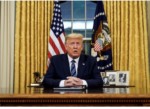Coronavirus will change the world. The “how” is growing clearer with each day of its global spread.
Unpredictable events produce unforeseen outcomes. Yet sift carefully through the deluge of reporting, and one can discern the first outlines of how this entrepreneurial pathogen will leave its mark.
Here’s just a short list of what we know already as the coronavirus has reached some 94 countries, with more than 100,000 cases and more that 3,400 deaths.
What we’re learning – in real-time, Darwinian fashion – is that proactive countries, societies and individuals are performing far better than reactive ones. Governments that engage in truth-telling are heading off dangers faster than those that obfuscate or delay. (More on that below.)
This week, we were also reminded of the benefits of international collaboration and trust – and the dangers where it doesn’t exist – both in addressing health emergencies and their global financial implications.
For her part, International Monetary Fund Managing Director Kristalina Georgieva, pointing to “more dire scenarios,” made available $50 billion to help countries deal with the virus, including $10 billion at zero interest for the poorest of nations.
Get the Inflection Points newsletter
The United States and Europe should take this moment as a wake-up call to pay far more attention to addressing non-military national security threats, including their excessive dependence on China for crucial supply chains that reach from pharmaceuticals to “rare earth” materials used in almost all our high-tech gear. Today, about 80% of pharmaceuticals sold in the US are produced in China. China is also the largest and sometimes only global supplier for the active ingredient of some vital medications.
Chinese leaders will have to rapidly adjust their economy to the new reality in which global manufacturers will diversify supply chains, wherever they can, at the cost of Chinese workers. In a country where economic growth figures buy authoritarian leaders their credibility, this year’s slowdown and job losses could have far-reaching consequences.
Chinese leaders are already addressing these challenges through new economic stimulus programs, which are a good thing, but the temptation at the same time has been for more authoritarian controls and nationalist rallying, which is less good, particularly if you live in Hong Kong, Taiwan, or the region.
Iran, one of the four countries hit hardest by coronavirus, with more than 4,700 cases and 124 deaths, is lurching between measures to stop its spread among an increasingly distrustful population and steps it has taken to accelerate its uranium enrichment toward a nuclear weapon.
Iran could choose to rapidly reduce its costly, malign regional behavior, which neither its citizens nor its neighbors can afford. It could pull back from recent steps to increase its uranium enrichment in the direction of weapons grade materials. The alternative, which appears to be the course Iranian leaders have chosen, is an ultimately reckless and perhaps suicidal path of internal repression, ensuring hardline electoral outcomes and external aggression.
Coronavirus has made that path even less sustainable. Watch this space.
This column has tried to keep a healthy distance from U.S. domestic politics. And pathogens are nonpartisan. However, it’s hard not to reach conclusions, looking around the globe, that also reflect on the U.S. coronavirus response.
Countries that delay and dither in their initial responses (China, Italy) pay a heavy up-front price, and those that respond rapidly and responsibly can contain infection rates rapidly (Singapore, Taiwan, Hong Kong).
Italy and Hong Kong present a powerful comparison. Though Hong Kong shares a border with mainland China, it only this week passed the 100-case mark with two deaths, while Italy has had more than 4,600 cases and almost 200 deaths






Leave a Reply